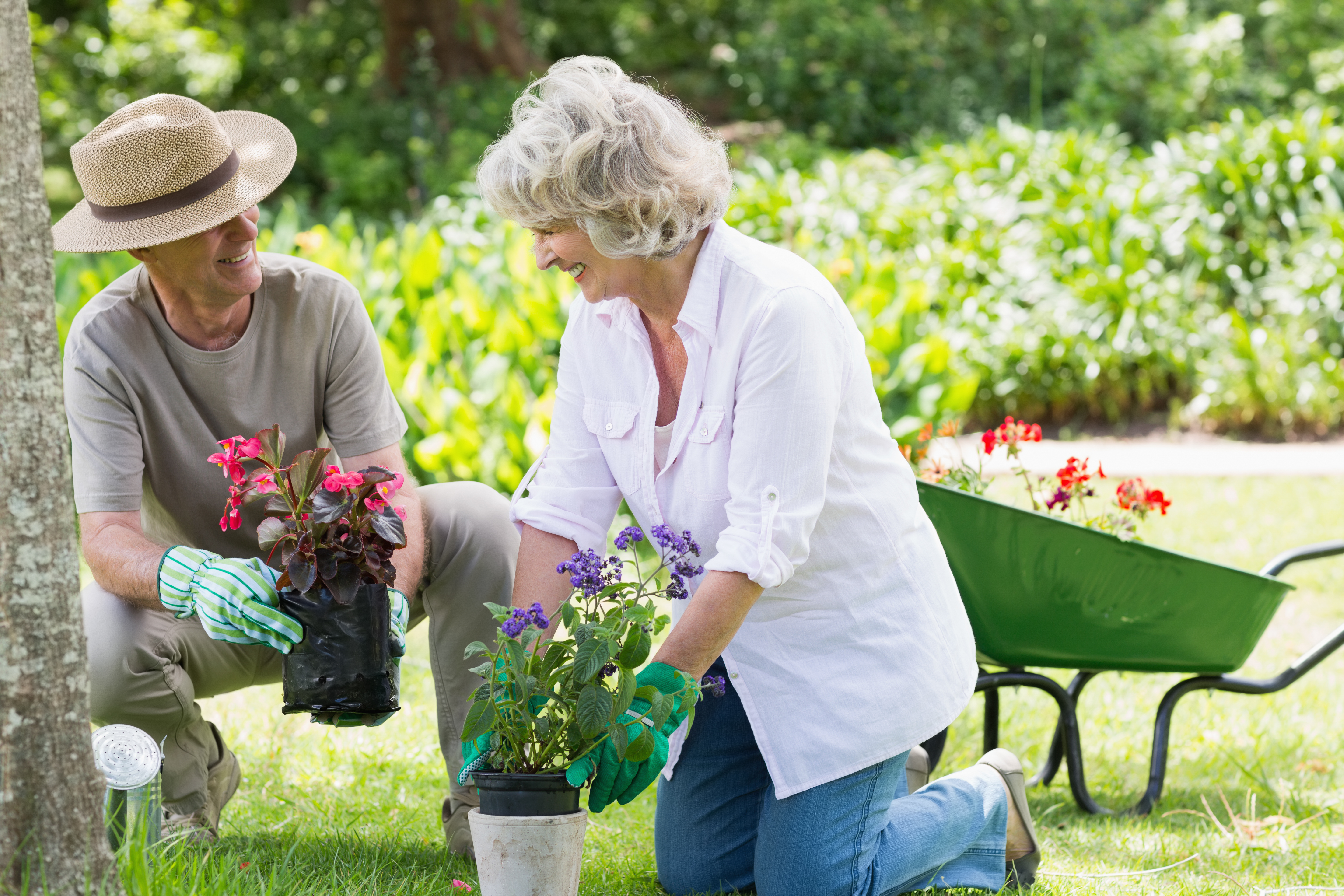Plants and gardens have long been recognized for their rehabilitative power. Most of us would agree that, no matter our age, sitting back and relaxing in a beautiful and fragrant garden is an excellent way of reducing stress and feeling at peace. Horticultural therapy uses the therapeutic power of plants, flowers, and gardens to help patients heal and rehabilitate.
As the American Horticultural Therapy Association (AHTA) notes, horticultural therapy has a long and proud tradition that dates back to ancient times and it has been used to treat a wide range of conditions, from mental illnesses to war-related injuries. Especially with spring approaching, there are many horticultural activities at A.G. Rhodes that can help our residents and patients on their road to recovery.
Horticultural therapy in a nutshell

Horticultural therapy is a treatment method that uses horticultural activities, such as planting, garden maintenance, and sowing seeds, to treat and care for patients and residents. While these activities are often entertaining and fun for patients and residents, they also help them achieve specific treatment goals. A patient who is trying to regain coordination and balance, for example, may be able to use horticultural therapy to do so. For other patients, the simple act of maintaining a garden can help improve memory and cognitive abilities. Because horticultural therapy is designed with rehabilitation and recovery in mind, the horticultural therapy sessions at A.G. Rhodes are run by a registered horticultural therapist.
The power of horticultural therapy
At A.G. Rhodes, we use horticultural therapy in a wide array of contexts. For residents who have limited mobility, bedside horticultural activities, such as caring for small plants using indoor fluorescent light units, allow them to engage in horticultural treatment from the comfort of their rooms. We also have climate-controlled greenhouses that make horticultural therapy available year round. Our greenhouses are fully accessible for residents who rely on walkers and wheelchairs.
Now that the weather is improving and winter has come to an end, our therapeutic gardens will be used for horticultural therapy sessions. These gardens are a wonderful component of the treatment services our residents benefit from at A.G. Rhodes. We often conduct group sessions in these gardens, which are an effective way of reducing isolation and loneliness among residents. Furthermore, we tailor specific horticultural activities to residents depending on their needs. For example, we have meditation spaces to help decrease anxiety, while light garden maintenance is used help in the treatment of a wide variety of physical and mental health issues, including the improvement of motor skills, memory, language use, and cognitive abilities.
Because horticultural therapy is just one element in a resident’s overall treatment plan, we often combine it with other therapies. Co-treatment between horticultural therapy and therapies including physical, occupational and speech, occurs on a weekly basis. During treatment, patient needs are assessed and goals are established. Horticultural therapy may assist by increasing activity level, reintegration into a past interest, or by decreasing stress and anxiety.
The healing power of nature is one of the key ways we help our residents and patients in their recovery and treatment programs. Our goal-oriented approach uses horticultural therapy to deliver real results for participants. Contact us today to find out how horticultural therapy, along with our other programs, can help you or a loved one receive the very best in treatment and rehabilitative care.

